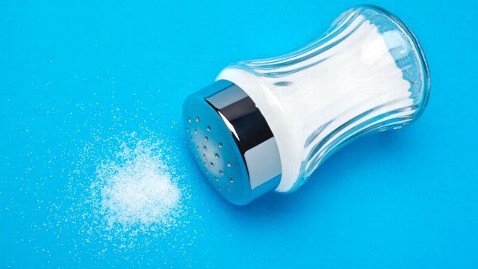Cutting Salt Slowly Could Prolong Half a Million Lives, Study Finds

Cutting salt intake could save lives, researchers say. (Image credit: Getty Images)
As many as a half a million American lives could be saved if we all ate a fraction of a teaspoon of salt less every day, a new study suggests.
The study, published today in the American Heart Association's journal Hypertension, found that a gradual decrease in salt consumption over a decade - ending in a 40 percent reduction - would prolong the lives of between 280,000 and 500,000 people by decreasing the risk of hypertension and heart disease.
"It certainly confirms the enormous potential value in reducing the consumption of sodium," said Michael Jacobson, executive director of the consumer watchdog Center for Science in the Public Interest. The study is novel in that three groups of researchers using different methods all came to the same conclusion, he said.
Americans ingest, on average, 3,600 milligrams of sodium daily, compared with 1,500 recommended by The Centers for Disease Control and Prevention. The study looked at cutting everyone's salt intake down to 2,200 milligrams.
But foodies, fear not. The way to reduce Americans' salt intake isn't to hide the salt shakers at the dinner table, according to Kirstin Bibbins-Domingo, associate professor of medicine and epidemiology at the University of California at San Francisco. It's to get food companies to cut down on the amount of salt they put in commercially prepared and packaged food - the source of 80 percent of Americans' sodium.
"The idea is individuals can't make this choice easily, so maybe we should find ways to work with the food industry," Bibbins-Domingo told ABCNews.com.
Those who most need to watch salt intake are people with high blood pressure, a condition that afflicts most people by the time they're elderly, she said.
An industry representative blasted the study as too narrow.
"For the last 30 years public health has focused only on hypertension as if nothing else exists," said Morton Satin, science and research director at the Salt Institute, which represents salt makers. Low salt intake can lead to higher risk of illness and death for people with diabetes and other problems, said Morton. He claims he's not biased.
"This has got nothing to do with selling an extra pound of salt," he told ABCNews.com. "One good snowstorm, we sell more salt than a whole year of food."